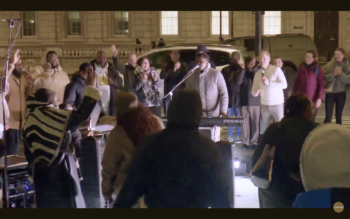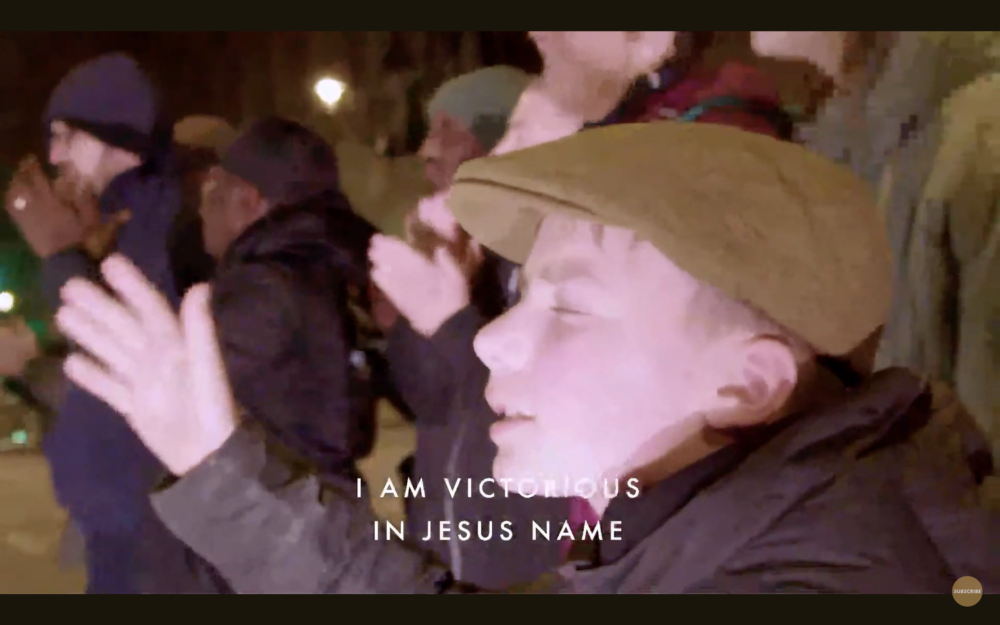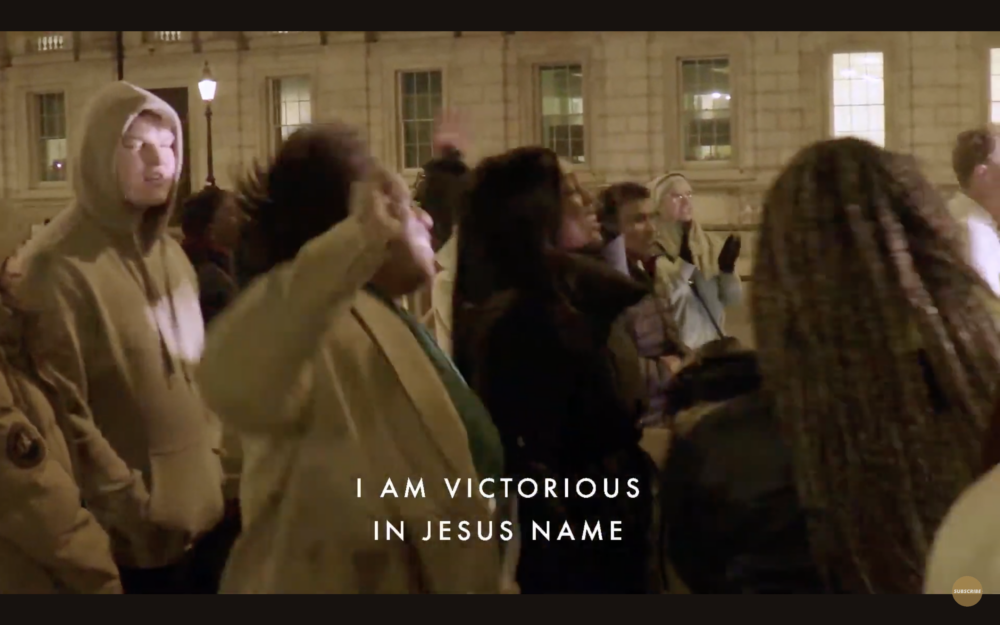From “Crisis” Magazine
The Good News About Fasting
Michelle Petersen
“I dread fasting—it’s miserable.” “It’s too easy and not even a sacrifice for me.” “Does my condition exempt me or not?” “How much is OK for each meal or snack?” “Well, it’s really just about self-denial, so I’ll just give it my best shot.”
Among Catholics, this wave of consternation is about to hit on the eve of Ash Wednesday. Each year, these questions pepper Catholic social media; and each year these Catholics suffer more than necessary because repetition of the rules cannot address the experiential side of their struggles. We give it our best guess and tough it out for the two required days, then feast during Eastertide, and soon our busy lives delay the search for deeper answers until Lent rolls around again. This year, let us prepare in body, mind, and spirit and seek grudging acceptance of a holistically life-giving relationship with the virtue of fasting.
Fasting has been a stumbling block to me personally in each of the above ways at different times in my life, and it has been a journey to find peace with fasting and even a love of fasting. In the messy process of learning, two key discoveries have been absolutely pivotal. My first breakthrough came when I learned from Catholic doctrine that fasting is a virtue, a habit: it is built into our very nature to adapt to fasting, so that it becomes easier with a bit of practice.
Even as I practiced fasting and enjoyed the increasing ease, I found that there was still a grating resistance and dread inside me that was not due just to pangs of hunger. If this is you, I urge you to ask yourself: Do you truly believe that fasting is good for you as a whole person—good for your body, good for your emotions and imagination, for your whole psychological state, as well as for your intellect and will in grace? Do you truly see it as a gift from God, your loving Father, who wants you to find not just the initial mortification but actual refreshment of body, mind, and soul as the fruit of this medicinal practice?
The second breakthrough for me came from the secular fasting movement, which enabled me to see an underlying misconception I had been harboring. As the secular movement discussed the health benefits of fasting and the healing mechanisms in the human body that fasting unlocks, I realized that I had been thinking of fasting as causing damage to the body, as a way of benefiting the soul at the cost of the body in a zero-sum manner: all penalty born by the body and all fruit enjoyed by the soul. While it is true that extended fasting can be damaging if done recklessly and that there are conditions in which it is not healthy to fast (for which the Church makes exemptions), it is erroneous to think of fasting as harmful, especially the carefully defined, limited fasts the Church requires.
In fact, the Church has always taught that fasting integrates body and soul by teaching the body to follow the guidance of the soul and that it is beneficial to the whole person. The data on the benefits of fasting helped me to approach the Church’s teaching with better understanding—without the post-enlightenment lens through which I saw the goods of body and soul pitted against one another—and to truly embrace fasting from food as an irreplaceable part of the spiritual life. Seeing the integral good of the virtue of fasting is really the answer to the stumbling blocks that so many of us encounter with fasting.
It can be hard to see in what sense fasting is good when it seems to be a natural evil: the deprivation of appropriate amounts of food. Similarly, it can seem wrong to say that human nature was designed to fast, since from the beginning it was not so. Nevertheless, both are true specifically in the conditions of a fallen world.
The state of original justice in which our first parents were created meant that the body was perfectly subject to the soul, so that it enjoyed health, secure life, and peace. The soul itself was ordered, the lower powers being perfectly subjected to the will and reason, both of which were perfectly subject to God in grace. This integration of the person, wounded by sin and its effects, paradoxically finds a remedy in the practice of fasting. While the state of Eden will never be restored, and perfect integration must wait for the resurrection of the body, we can truly make progress in health of body, mind, and spirit by the regular practice of fasting.
In his question on fasting in the Summa Theologiae, St. Thomas Aquinas observes that fasting is good because it is aimed at a threefold good: the curbing of concupiscence, the atonement for sin, and the raising of the mind to spiritual things. He quotes Augustine’s sermon on prayer and fasting: “Fasting cleanses the soul, raises the mind, subjects one’s flesh to the spirit, renders the heart contrite and humble, scatters the clouds of concupiscence, quenches the fire of lust, kindles the true light of chastity.” Here we see a hint at the integrity of the person being restored: the soul is rendered receptive to God, the mind clear, the lower powers of the soul docile to the higher and the flesh to the soul. St. Thomas Aquinas observes that fasting is good because it is aimed at a threefold good: the curbing of concupiscence, the atonement for sin, and the raising of the mind to spiritual things.Tweet This
St. Thomas, in listing the ways in which fasting is natural to us, observes not only that we all naturally fast between meals but also that men willingly fast more “in order to avoid sickness, or in order to perform certain bodily works with greater ease,” implying that physical benefits were commonly acknowledged. Regarding the spiritual benefits, he goes so far as to say that the need for fasting in general is a precept of the natural law, a manifest remedy for all touched by sin, and that the laws of the Church merely add due times and manners to fasting.
St. Thomas Aquinas could not have known the mechanisms by which the body, in a fasting state, reverses the physical effects of decadent living, purifies itself from pollutants, and regulates neurotransmitters to ameliorate the psychological state, but he knew that this virtue works to reverse the effects of sin and of living in a sinful world, even providing benefit to the body.
My emphasis on the physical benefit is by no means to introduce a prosperity gospel that promises health. Rather, I wish to demonstrate that fasting is not about suffering as such or sacrificing the good of the body. It is about the proper ordering and union of both under God, submitting to God’s ordering instead of our own, which actually tends toward the flourishing of the whole person. Though we may be called at times to leave behind the temporal good of the body for the sake of the soul, God’s general design for fasting as a habit includes the good of mind, body, and spirit, which, post-enlightenment, is an important truth to rediscover.
The integral good of fasting from food also explains its primacy in the Church’s disciplines. Despite the great good of withdrawing from other comforts and pleasures, fasting from food is fundamental and irreplaceable because of its ability to order both body and soul. This is why even when fasting from food becomes easier, and giving up another created good would be more difficult for a particular individual, the fast from food still supports the proper ordering of body to soul and soul to God that brings clarity and strength to other forms of penance.
Bringing a positive, holistic understanding of fasting to others in a way that can transform it from stumbling block into stepping stone needs to happen primarily through culture—virtue is taught by experience. We need the steady example and reassurance of those around us to give us hope and confidence that fasting can be done, and done beautifully, as a regular part of life.
If you are struggling with fasting as a stumbling block, I encourage you to read what current fasting science has to offer on the subject, such as Fast Like a Girl by Mindy Pelz or The Complete Guide to Fasting by Jason Fung. You may find motivation, reconciliation to the idea, guidance on how it works with any health conditions you may have, and guidance to gently work up to Ash Wednesday. We can take what is true in secular fasting culture and use it to help us revive neglected traditions. I encourage you also to learn and practice with others in your family and parish, so that we can build a Catholic fasting culture and truly accompany one another on the path to Heaven.











